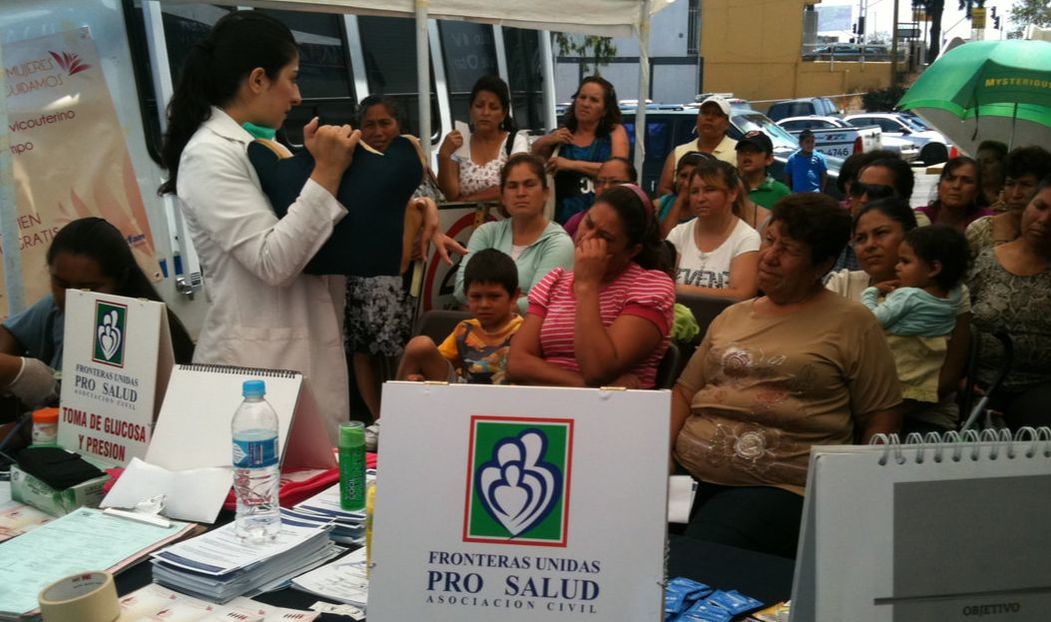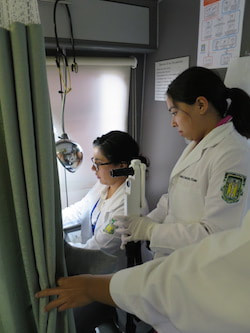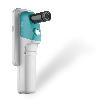
In 2014, the International Community Foundation (ICF), Scripps Health, and Prosalud piloted a cervical cancer screening program across Mexico. The aim of the program was to validate new technologies and ensure the 48.4 million women at risk for developing cervical cancer – the most common cancer in women aged 15-49 years old – get the preventative care they deserve. While current prevention efforts are far-reaching, screening rural and indigenous women continues to be a challenge as a result of the distance to health-care centers, awareness, and cultural norms.
Made possible by a grant from the Vodafone Americas Foundation Wireless Innovation Project, the group of diverse partners worked to increase education, awareness, and engagement with communities in the Baja, California region, where incidence remains high. Deploying the EVA System in ProSalud’s fully-equipped mobile clinic, eliminating the need for women to have to travel, pay high fees and become educated about cervical cancer prevention.
Cervical Cancer Prevention with the EVA System
 Over the course of the partnership, 785 women were screened for cervical cancer with the EVA System, an FDA-cleared and CE-certified mobile colposcope, to reach vulnerable, high-risk women in underserved communities. Partner staff shared, “this was a strong and rewarding program for the community, given the outreach focus. Patients were able to start and conclude successful treatment, after referral to Pro-Health Medical Center. Providers who were trained included both medical and social service interns, who were motivated to use to the [EVA System colposcope] because of the training aspect, and engagement of the software in the device.” The ProSalud community outreach was part of an effort to include cervical cancer prevention as part of a broader reproductive health curriculum.
Over the course of the partnership, 785 women were screened for cervical cancer with the EVA System, an FDA-cleared and CE-certified mobile colposcope, to reach vulnerable, high-risk women in underserved communities. Partner staff shared, “this was a strong and rewarding program for the community, given the outreach focus. Patients were able to start and conclude successful treatment, after referral to Pro-Health Medical Center. Providers who were trained included both medical and social service interns, who were motivated to use to the [EVA System colposcope] because of the training aspect, and engagement of the software in the device.” The ProSalud community outreach was part of an effort to include cervical cancer prevention as part of a broader reproductive health curriculum.
The groundwork for artificial intelligence screening outcomes
The images collected with the EVA System laid the groundwork for MobileODT’s machine-learning and artificial intelligence program that will use algorithms that help identify high-risk patients and provide decision support for any next steps or treatment in the future.
While we still have much work to do drastically reduce the 5000 deaths annually from the disease in Mexico, we know that new approaches to screening ensure no woman is left behind.







